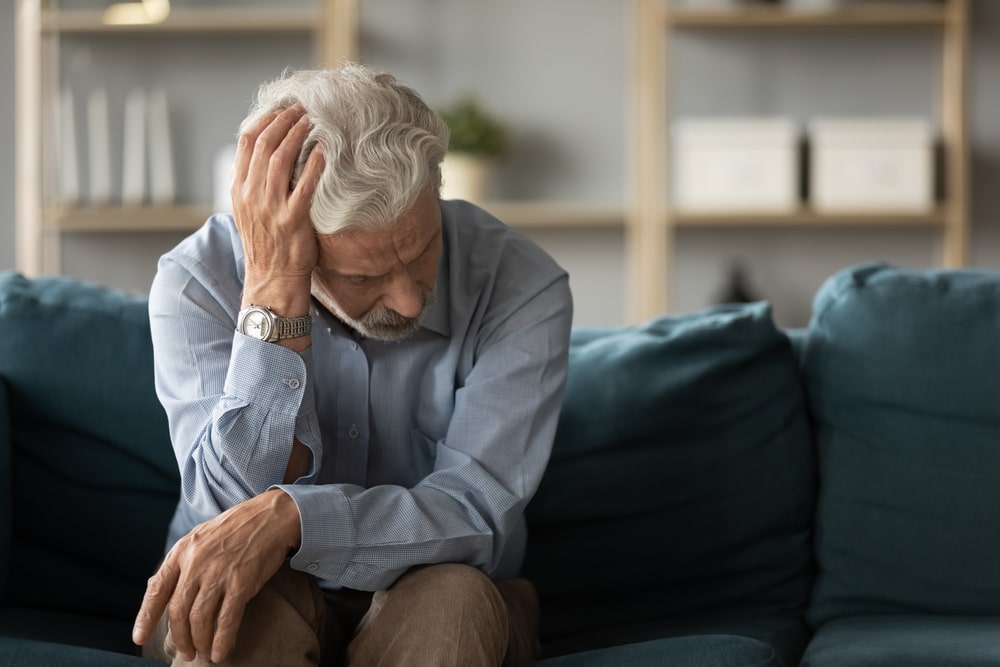
Being diagnosed with cancer is a life-changing experience that can cause feelings of anxiety and depression. Men with prostate cancer face unique challenges that can impact relationships and lead to a lower quality of life.
Certain prostate treatments, such as surgery and radiation, have a high risk of serious side effects, including urinary incontinence and erectile dysfunction. The threat to their quality of life and mental health is enough for men to forgo treatment altogether, instead opting for active surveillance.
Identifying Anxiety & Depression
Everyone reacts differently to a prostate cancer diagnosis, and there is no right or wrong way to feel. Emotions and reactions can fluctuate greatly, and some days may be better than others. Living with cancer can be all-consuming. Regardless of how much you try to live life as normally as possible, a cancer diagnosis can affect your life at home and work.
While anxiety and depression are common with a life-changing disease, it’s important to identify extreme changes and get help when needed.
Feelings of anxiety can include:
- Paralyzing fear or worry about appointments
- Nervousness and anxiety about prostate treatments, including surgery, radiation or focal therapies like the TULSA Procedure
- Nervousness and anxiety about tests, such as prostate-specific antigen (PSA) tests, MRIs, rectal exams, ultrasounds, and more
- Worries about cancer spreading or returning
- Anxiety about your family’s financial situation
- The fear of dying
It’s normal to feel sadness after a diagnosis and with treatment – however, if you are feeling irritable and hopeless most of the time and for more than two weeks, it could be a sign of depression.
Depression can include:
- Losing interest in activities and hobbies that were once enjoyable
- Not wanting to spend time with friends and family
- Isolating from loved ones
- A constant low mood
- Feelings of hopelessness
- Short-temper and irritability
- Constant fatigue and low energy
- Changes in appetite, whether eating less or more
- Problems sleeping
- Problems with concentration and memory
Seeking Help
Men are statistically less likely to seek mental health treatment than women. Traditionally, men are raised as the protector and to remain strong for their loved ones. Today, more events and movements are breaking that stigma and raising awareness to support men’s mental health.
With more mental health resources for men than ever, there’s an opportunity to provide the support they need while living with cancer. If a cancer diagnosis is impacting your mental health, here are some ways that can help:
- Share your honest thoughts and feelings with your loved ones.
- Talk to your partner about the potential shift in your marriage.
- Seek counselling or therapy, as you might find it easier to talk to someone you don’t know.
- Talk to your medical team, as they can provide unbiased and professional insights, which can help reassure you and ease your worries.
The bottom line is: you are not alone in your journey. Talking to someone about your honest thoughts and feelings can lower your stress levels and improve your overall well-being, which can be a positive factor in treating the disease.
References
Males and Mental Health Stigma, Chatmon. https://www.ncbi.nlm.nih.gov/pmc/articles/PMC7444121/
Feb 1, 2023 | Cole Parrish
 Find a Center
Find a Center Contact Us
Contact Us
